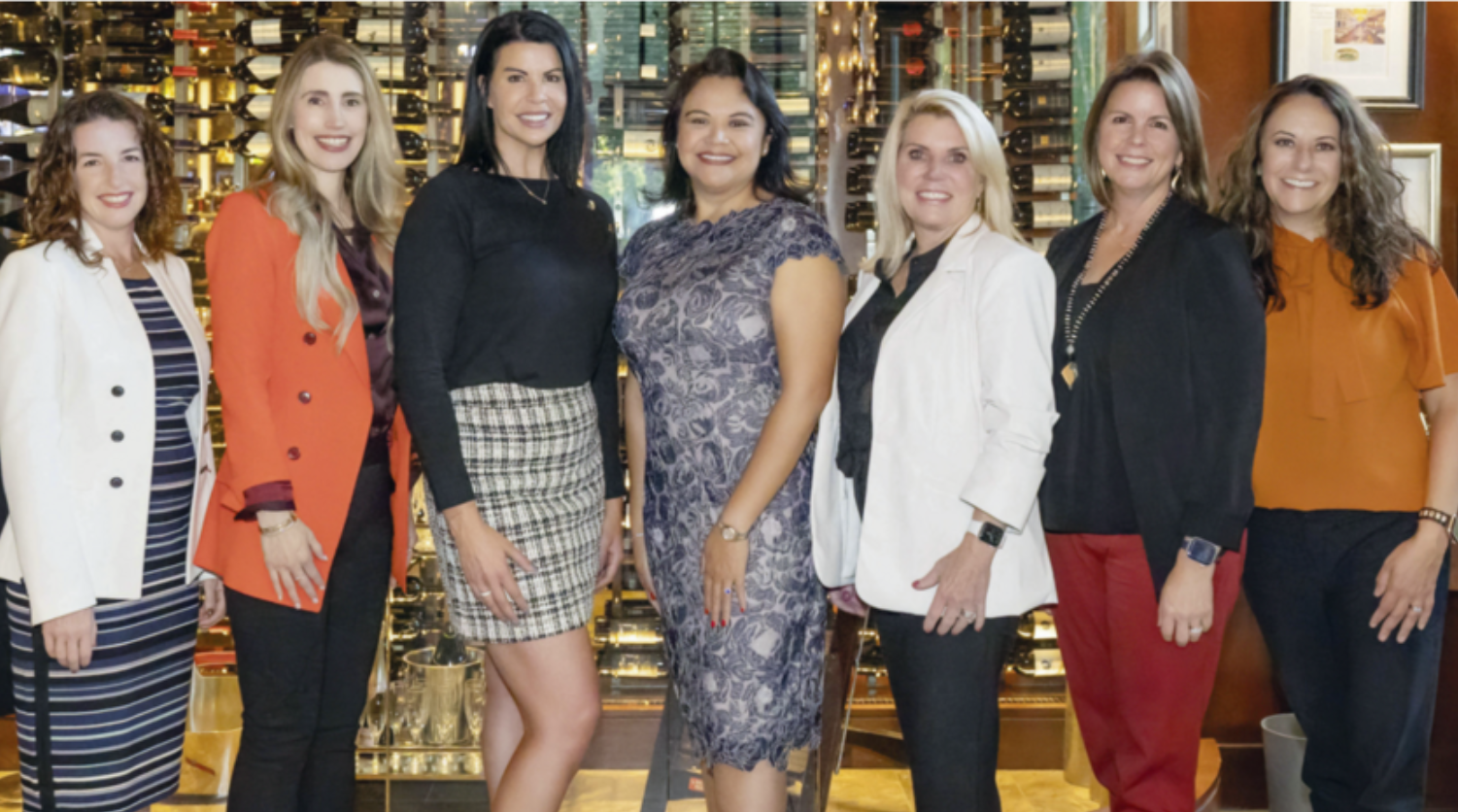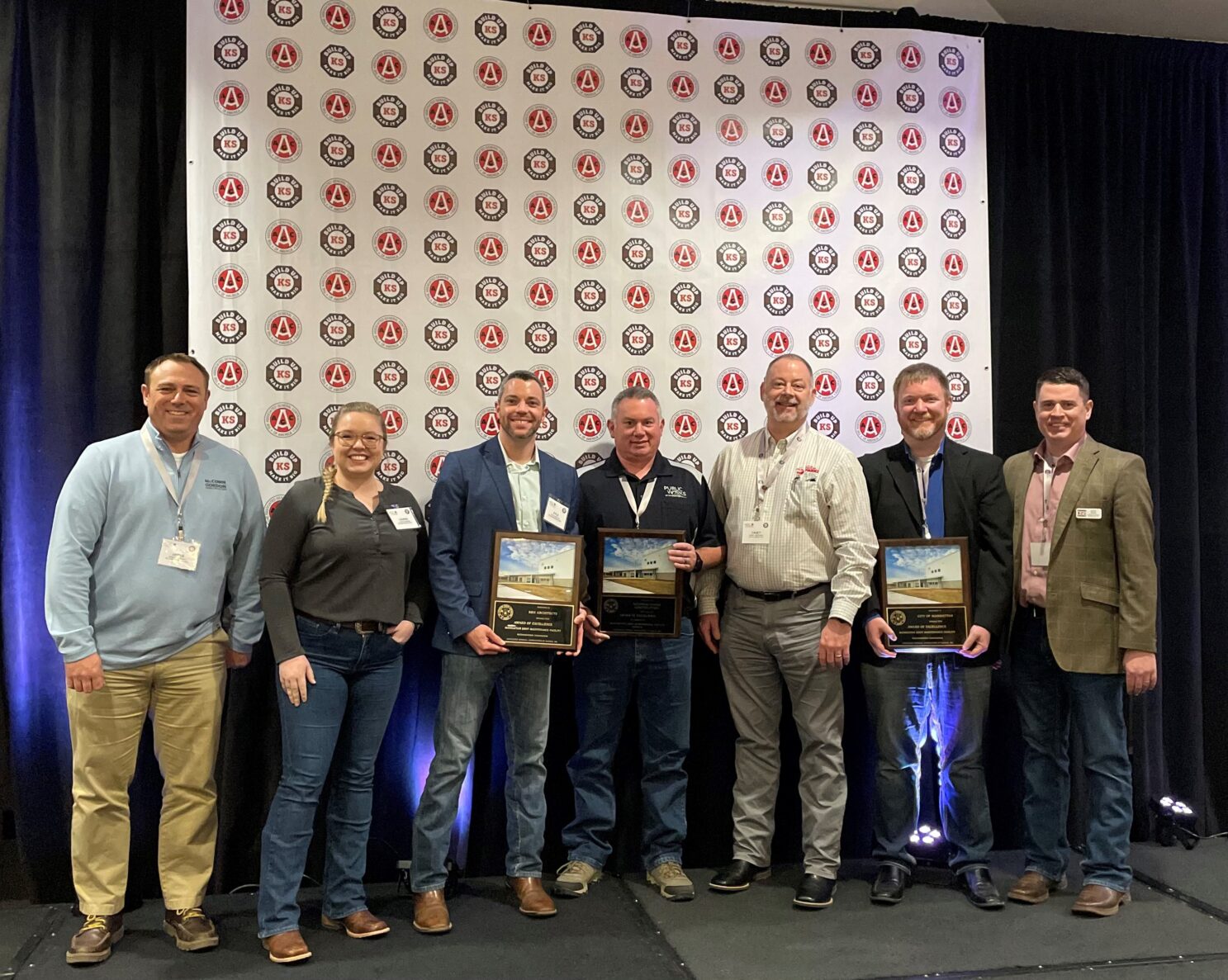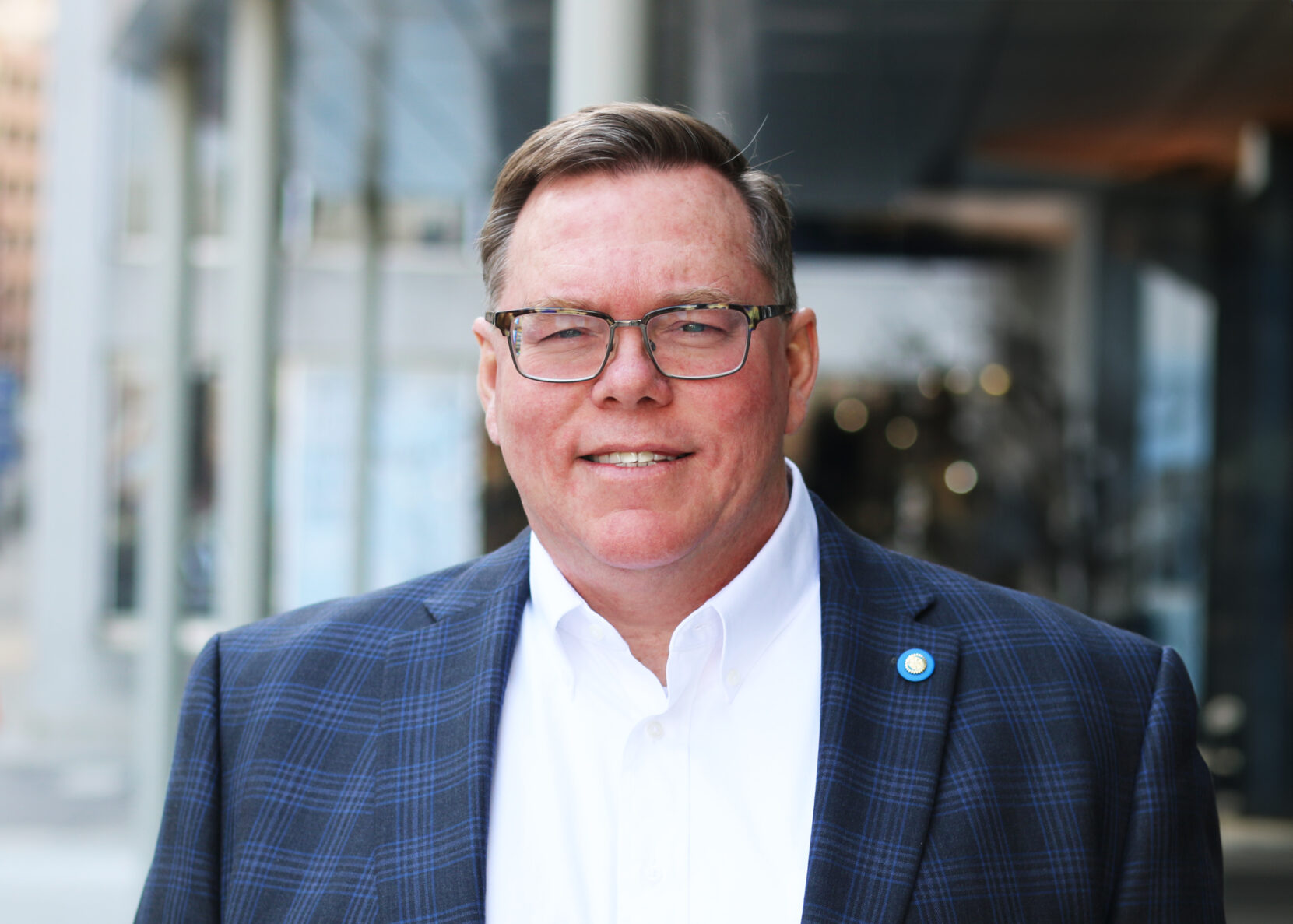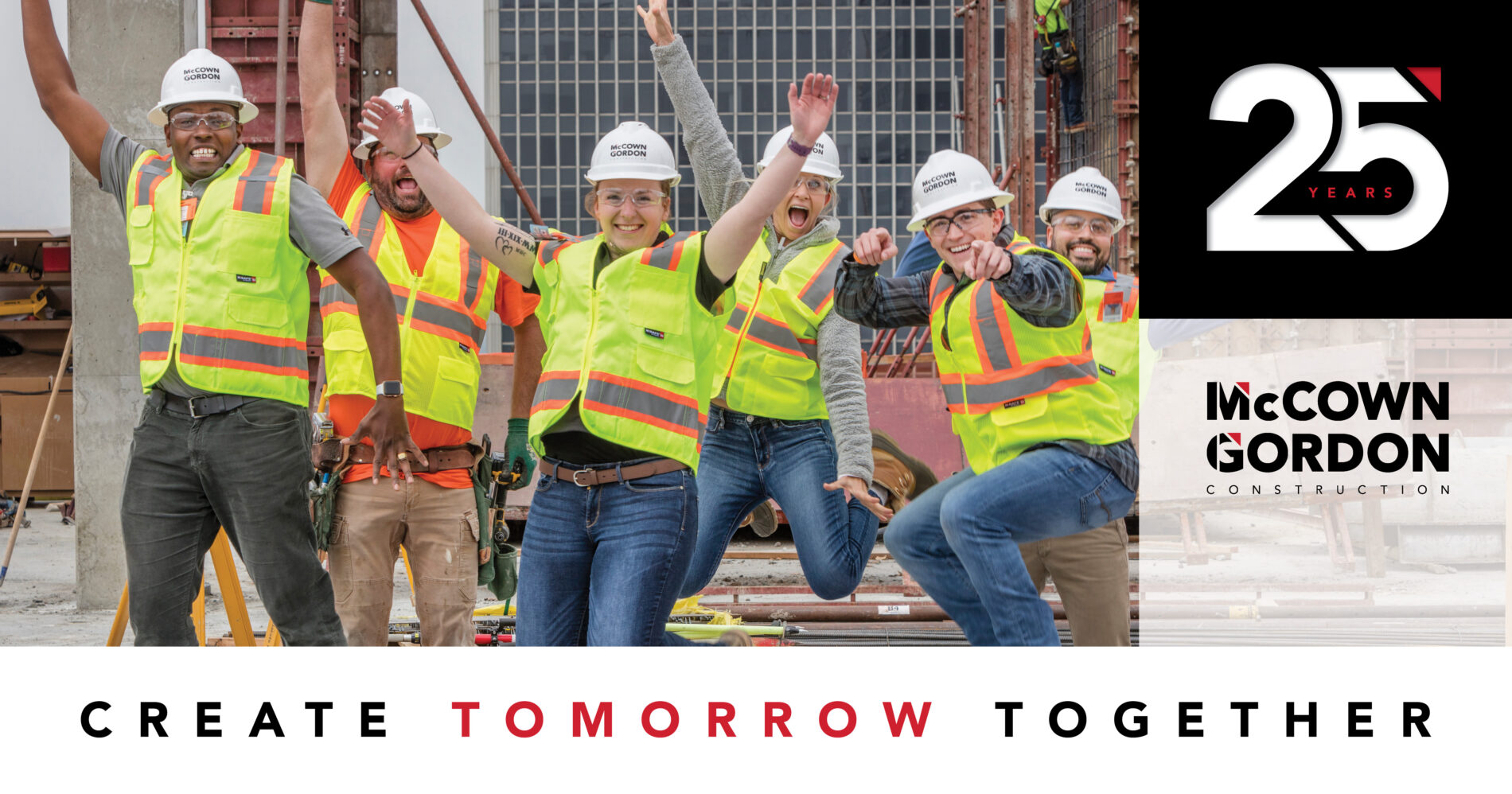Women in commercial real estate and construction

Women have had to fight for every inch of advancement in the workplace, over decades forging careers in industries where they often were vastly outnumbered. And few industries have been as tough to crack — or required as much mettle from the women who ventured in — as construction and commercial real estate.
Women make up just 9.9% of the U.S. construction industry, though their pay is nearly on par with that of their male counterparts, according to The National Association of Women in Construction. The picture flips a bit in commercial real estate. Women occupy 36.7% of the industry — a figure that hasn’t changed much in 15 years — yet they make much less: the fixed salary gap tops 10% and the commission and bonus gap is almost 56%, according to CREW Network.
At a recent roundtable discussion sponsored by McCownGordon Construction, local women who have established themselves in those fields shared their assessments of current conditions, persisting challenges, the keys to success, and what remains to be done.
April Hudson, McCownGordon Construction, Moderator: What have been the biggest roadblocks as females in these industries?
Andrea Wilkins, EY: The biggest roadblock for me in this industry has been equal pay. In a previous job, the opportunities I was given based on work performance were stellar. A lot of times, pay is not shared, but there was a leak at one point. I thought I was doing really well and making progress, and I felt very comfortable with where I was professionally, but then I found out that my male counterparts were making $20,000 more than I was making. I brought it up to my boss … and he said, “I can’t do anything for you.” So I left.
Marijke Lantz Flowers, Billingsley Company: Women may not know how to compete. If you don’t learn from a young age to go out for it and get it from day one, it adds up. Over 10 years, you turn around and realize, “I’m not being paid enough.”
Sara Dickinson, HKS: I started a firm very young, at the age of 23, in the New York metro area. I faced more of, “How can you design this? You’re so young.” They were looking at the five females in the room, my staff.
But also, there is a little bit of competitiveness amongst us. … Women in the industry have been competitors, but we need to be partners.
Debra Velez, KDC Real Estate: I didn’t have any tough roadblocks. But I was a construction manager at 24, and I was excited and terrified at the same time. … I was representing a big box store, and I was their store planner and designer, and then I became construction manager. And you look around and you don’t see many women. And I’m looking at my age, and I’m almost talking myself out of it. But one of the superintendents asked me how I was doing, and I said, “You know what, I’m terrified.” You know what he told me — and this was so great — he said, “That’s great.” And then I said, “But I’m also a little excited.” He said, “Even better. You’re going to do a great job. With a little bit of terrified and a lot of excited, you’re going to be valuable, you’re going to be relational, you’re going to seek out the advocates who are going to help you, you’re going to find those expressions in the room that are trying to align with you.”
And I’ve realized that now, I get to be that person in the room. … We need to do a better job seeking out the strengths in each other, and trust that we can have each other’s backs, and edify each other.
Tanya Ragan, Wildcat Management: Our natural inclination when we enter the industry and we’re the only woman, or one of few, is to maybe downplay who we are — we don’t want to rock the boat too much. … Women think, “I have to be absolutely perfect before I go do this or ask for this.”
As a general contractor, McCownGordon has been focused on hiring the best talent in DFW, and it just happened to be that 50% of our hires have been women. In a male-dominated industry, do you think women are looked at across the table differently than men?
Dickinson: I honestly don’t think so anymore.
Wilkins: I’m going to slightly counter that. Yes, women are looked at differently, but in a good way. They are looked at in terms of bringing that advantage to the client. … Women generally are known as being better negotiators — they’re known for building better relationships. And that’s for the advantage of the business, to get the business.
Flowers: I think we are much more intuitive when we’re trying to listen to a client’s needs or what’s going on. To your point, we’re seen differently, but we’re a strength, not a weakness. Whereas before, it was more like, “Who’s that alien walking around?”
Velez: As women, we know how to navigate to that third right answer. Because we’re multifunctional beings as it is, we’re a little bit better at working through a tumultuous conversation. We think in our heads, there’s one way we’re going to feel edified and positive about this conversation. Let’s get to the third right answer. We’re just better communicators because we can drive to that.
Elizabeth Ponce, Picasso Contractors: I think that most of us are not looked at differently because we have been in the industry such a long time and dominated the section of what we do, and we are not a threat anymore to the men or to the newcomers? Because we are seasoned, we know our scope, we know what we do.
I’ve been in demolition work this whole time. I have male mentors, and I’m telling them I want to do general contracting, I’m ready. And they say, “Why would you want to do that? You’re doing fine in demolition.” But I say this — why would I not try it?
Maybe because everybody here at this table is already comfortable in their roles and knows their stuff, you don’t feel the threat from the men. But there are women out there that are starting into the industry, and they feel terrified.
Velez: Even though we might be getting adversarial commentary, I think we’re all sitting here because we had that element of tenacity, and we had that grow inside of us, whether it was mentored or whether we fostered it.
Those comments are going to come — they just are — whether it be from another female or a male.
Ragan: We can all say things are great and times have changed, but when I went out to seek contractors who were women, I had a very, very difficult time. When I gave those women opportunities, for some of those women, my project was the largest project they’d ever worked on, and it was the first opportunity they’d had on a commercial project.
I have young women in my office who struggle with being heard, having a voice. When they show up at meetings, representing me, they come back and say, “They just wouldn’t hear me,” or “I couldn’t get a response,” or this and that. And these are strong women.
So I think at the end of the day, we have to work harder. The expectations of us are different. You are held to a high standard. I firmly believe that.
Wilkins: In this business, you have to have tough skin.
Ragan: I have spent a lot of my career not only having to work harder, but when I’m successful, hearing all the reasons why I was successful that weren’t because I’m really good at what I do and I work really hard. Comments that were almost dismissive in nature. And I thought to myself, “I just need to do a bigger deal, the next deal, to prove myself.” But at a certain point, I realized there was no next deal — there was nothing I could do to prove myself to them. I had to stand up and realize, I’m very good at what I do, and I deserve all my success because I worked so hard for it. What I realized it’s not about a bigger or better deal, it’s about paving the way to make it easier for other women to join me.
How do you manage a work-life balance?
Wilkins: I have always struggled with work-life balance. For me, it had a negative connotation because you’re always striving to find that perfect balance and you could never find it. And I don’t have children, but I still have a husband, nieces and nephews I want to spend time with, I still have parents, I still have all of the other things.
That work-life balance for me was always striving to find the equal balance, and I had a colleague several years ago that said, “Why are you killing yourself for this? You’re never going to find it. It’s not a balance, it’s an integration. You need to learn how to bring the two together.” And I said, “What does that mean? And she said, “You’ll figure it out.” And after a year or two, I decided she was right.
Some of my best friends now are in the industry, and we travel together, we exercise together, we go to dinner together. That social aspect that was my personal life has now integrated with my work life. So if I’m traveling for a work trip, and I go somewhere that’s a great place to go, I bring my husband. Friday at the end of the week, he comes, and we stay the weekend and we make a vacation out of it. There are several things like that where I’ve just now started to integrate them. There is no balance.
Flowers: When my youngest was born, I had to be in the hospital for a long time before she was born, so I was out of the office for a long time. When she was a month and a half old, I just started bringing her to the office. We would work 90-hour weeks, and I wanted to see my daughters. I set up a crib late in the afternoons so she could be with me and stay late in the night. They said, “Did you ask anybody?” I said, “No I never asked.”
Velez: But then they start seeing that you can do your job well because you feel that you’re supported in your life, in what you’re doing for your children. But you’re still doing the thing. It just looks different.
Ponce: I struggle with work-life balance, I actually programmed my last two C-sections. I had them on Friday because I didn’t feel like I could be gone from the office for a long period of time. After three days I returned to work with the baby. I feel like you just have to accommodate to whatever the needs are, as the business owner, overyone depends on me to be there.
Ragan: I’m not married — I’ve never been married, I have no kids. For my personal situation and my experience, I have found it extremely difficult with the pace that I’m in and the responsibility that I have, and the travel, to make that work.
My younger self, living in New York — I always thought that I could balance it all and manage it all and get married and have a family and maybe be the main point of income, but I have not personally found that. And I guess that goes back to expectations again. My situation may be different than you all, but I personally have really, really struggled with that. At this point in my life, I feel like I have had to sacrifice a lot for my success. But I love what I do. I get up every day and I’m so grateful and thankful, and I have wonderful friendships and have been able to accomplish so much in my life.
What is one thing in the industry that has changed since you started your career?
Ponce: In the last five years, I have now 50% women, 50% men working for me. And I couldn’t say that I had that before.
Wilkins: When I started in the business 16 years ago, there were no women in leadership. Over time — I would say just in the last five to seven years — it’s changed, and they’ve started putting women in those leadership positions, and rightfully so. These women have owned it and should have been there earlier. But I still don’t think there’s enough. I think we still need more women in leadership — we still need more women in the C-suite making decisions, contributing — but they’re there, and they’re doing a fantastic job, and revenues have increased, and we’ve seen more success with the women being in those positions.
Ponce: Some of the women working for me, it has really changed their lives. Some worked at factories or in cafeterias, but they’re getting paid more working for me in the construction industry. Bringing that paycheck home to the household now gives them empowerment and wanting to be equal to their partners. Being in construction, you don’t have to have a lot of experience if you’re starting at the bottom and working your way up.
What advice would you give to young women entering your industry?
Dickinson: Stay strong. Stick with your values and what you believe in, and what your goals are. Don’t lose sight of those three things: strong, values, goals. Lean into that. And seek mentors.
Wilkins: There is so much opportunity in commercial real estate for women right now that the world is your oyster. It is one of those industries that’s still a little behind when it comes to women representation and women leadership, and they need strong women. So if you think you have tough skin, you’re a go-getter, you have the tenacity, you have the ambition to do it, there’s so much opportunity for you there. So go for it, do it. You will be successful, and it will pay off.
Flowers: I always tell the young women, learn more than anybody else, learn more than your job, and ask a ton of questions. know more than your job is repeated. Don’t think just because you do a good job you’ll be rewarded you have to ask for it. That is the No. 1 mistake young women make day-in and day-out — you have to ask for it.
Velez: I tell them to be the best listener in the room — just try to out-listen everybody. Because people just want to be heard; they want to be recognized.
It’s not about how many letters you have behind your name, it’s about being kind and being present. Present over perfect. Sometimes, the best thing you can do is not your actual job, your actual craft — it’s just to be present in the room.
Ponce: Do what you like to do, because if you don’t, you’re going to live a miserable life.
Dickinson: You have to really hone in on what your strengths are.
Just because you have this architect or interior design or corporate realtor or whatever behind your name, it doesn’t mean that you have to be pigeonholed into that. You can create your own unique brand and figure out where your strengths are.
And that’s what I tell a lot of our young, up-and-coming hires that we bring in: This is your time. I’m going to put you on different things to figure out what you like. And then you’re going to tell me in a year or two, “I really like doing this.” And we’ll figure out how to press your role through that.
Ragan: I think fear holds a lot of young women back. One of my favorite sayings in the office is: Hard work beats talent. You can have all the talent in the world, but if you don’t work hard, what good is the talent? When you’re young, so many people want to help you. They want to support you. So don’t be afraid to reach out and ask for it.
I graduated from a small school, and I was very naïve. I didn’t have a lot of fear because I didn’t know any different. And when I went to college in Wisconsin, I researched where was the best place in the country for fashion and for retail. I learned of this company called Neiman Marcus that I hadn’t heard of. I contacted them — they had an executive training program. They were very nice and said, “It’s very exclusive, we’re full.” But I got on a plane, and I flew there, and I showed up at the HR department and convinced them to make a spot for me. That experience — being around all of the management and the executives and going through that program as an intern — set me up for success, I believe, for the rest of my career. But because I was young, I was willing to ask for it, and I was not fearful. It led to these opportunities. You have to ask.
Ragan: We mentioned encouragement. I made a personal decision probably five years ago, before the pandemic. I went through a period where I felt a little combative. I recognized that, I overcame that, and I told myself — from this point forward, if I read something in the newspaper, I’m going to send a note of encouragement. I’m big into handwritten notes. I think it is so important to offer encouragement, even to women we don’t always agree with, or we’re not always on the same side of the battle. But their success is my success. Their success is the next generation’s success. And I want to do everything I can to be encouraging and supportive for the women I see making things happen within this city.




